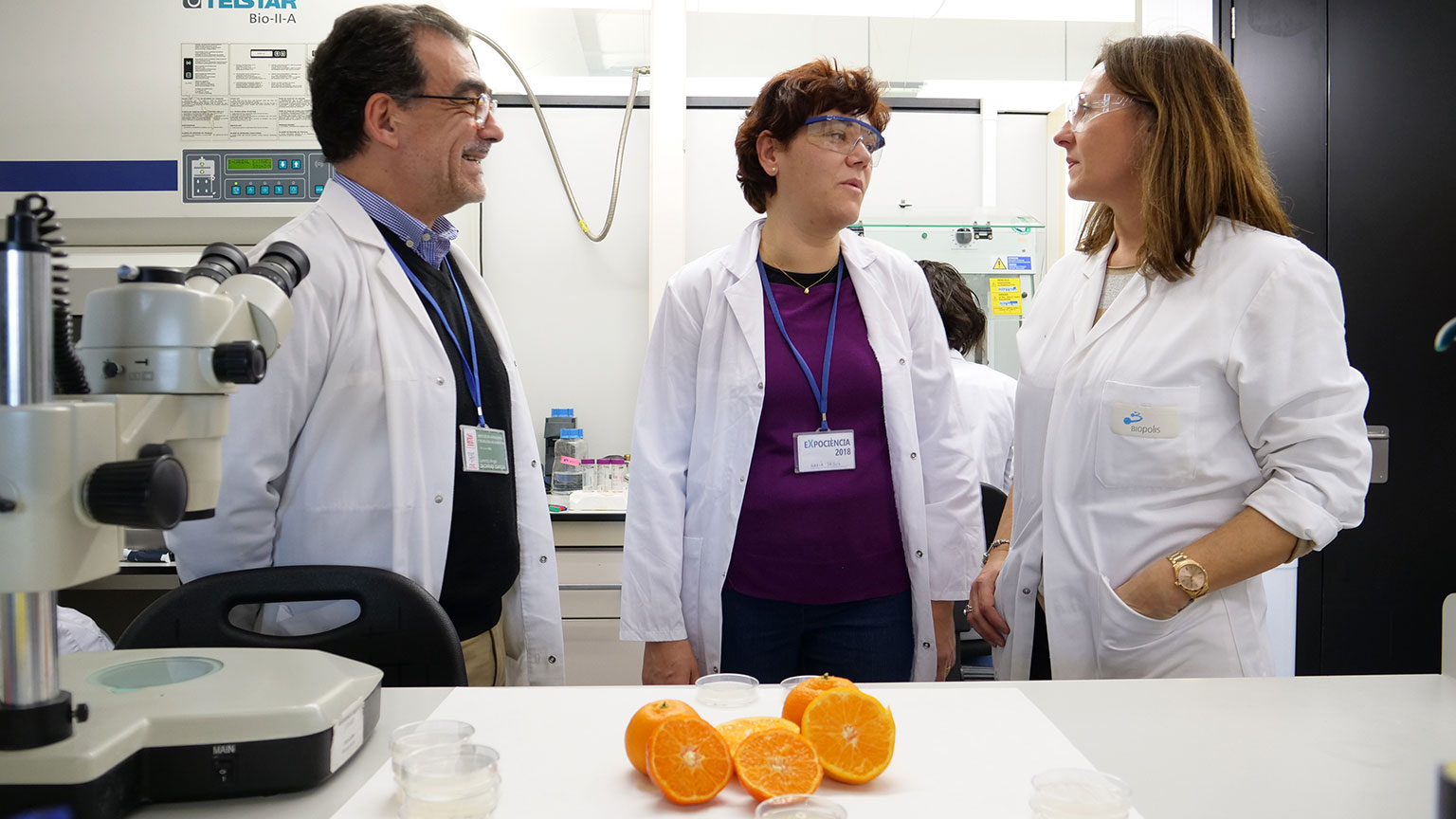The b-cryptoxanthin, which also has provitamin A activity, is present in a few foods, among which the mandarin
Carotenoids are compounds that give the characteristic color to many fruits and vegetable products, such as citrus, but in addition, they have important nutritional and beneficial properties for our health. Researchers Lázaro Zacarías and María Jesús Rodrigo, from the Institute of Agrochemistry and Food Technology (IATA-CSIC), located in the University of Valencia Science Park, have been studying them for more than a decade. In particular, his latest research puts the focus on beta-cryptoxanthin. "This pigment accumulates in very few vegetable products, including tangerine, and besides being pro vitamin A, it seems to have certain antioxidant properties that we wanted to demonstrate. For this, we needed an animal model to validate its functionality and we have achieved it by working together with the company Biopolis, also located in the Science Park ", explains Zacarías. "Supplied to Caenorhabditis elegans, a nematode that shares 40% of its genes with humans, that antioxidant role is corroborated and it is also observed that it reduces the body fat of the worm by 30%", explains Patricia Martorell, researcher at the biotechnology company.
The value of this study, published in the journal Nutrients, lies in the first place that, within the limited number of fruits that contain this carotenoid, "most are grown in the Mediterranean area, and among them, the star food is mandarin. In fact, the striking color of its pulp is precisely due to beta-cryptoxanthin," highlights Maria Jesus Rodrigo, who adds: "There are studies conducted in the European population that show that there is a clear increase in the presence of this carotenoid in the blood plasma coinciding with the seasons of autumn and winter, precisely the season of consumption of mandarins." This carotenoid is also found in persimmon, nispero and red pepper, and in tropical fruits such as papaya.
Secondly, the results of this study show that "beta-cryptoxanthin does not lose its bioactivity in the nematode organism when it is extracted -for example, from tangerine juices- and it is added to other mainly liquid food matrices, such as dairy ferments, skimmed milk, soft drinks or juices; in all of them, it has maintained its fat-reducing efficiency," assures Patricia Martorell.
"This result is very interesting for applied research because it points to a potential development of products for the food industry, which could incorporate this carotenoid or extracts of it into matrices and supplements," adds Martorell.
Prevention of diseases
In addition, the study "delves into the cellular mechanisms that are triggered after the intake of it, thus opening new opportunities to understand its role in the prevention of diseases related to the metabolic syndrome and aging," indicate from IATA and Biopolis.
All in all, they all underline, "now it is convenient to validate these results with preclinical research in murine models -rat or mouse-, where there are adequate models for obesity, and then carry out clinical studies in humans."
In Biopolis they have been using the C. elegans nematode for 12 years as a simple organism for the functional evaluation of ingredients. "Among its main advantages, mention should be made of its easy cultivation in the laboratory and also to preserve 40% of its genome in humans", underlines Patricia Martorell.
Its effects are not therapeutic
Likewise, Lorenzo Zacarías and María Jesús Rodrigo, specialists in studying the nutritional, organoleptic and commercial quality of citrus fruits, warn that the nutritional value of these compounds should not be understood as "drug substitutes. The beneficial effects of the components of fruits, which in this case help control body fat, are not curative or therapeutic. The beneficial effects of mandarin in this case should be understood in a sense of prevention, risk reduction."
In this line, they also emphasize that this type of research, in which the nutritional value or health benefits of food or ingredients are studied by means of contrasted models, provide scientific support for the allegations demanded by the European Union to publicize characteristics of the food components. "With this type of studies, with concrete data backed by rigorous experimentation, commercial strategies based on scientific data can be elaborated and avoid misleading advertising," they point out.


